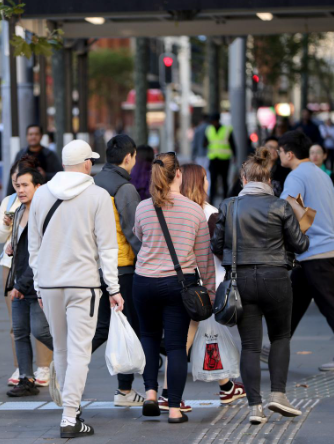Young Aussies just can’t seem to catch a break, with a CEO now branding Gen Z workers “selfish” for engaging in an increasingly common work trend.
Young Aussies have been blasted as “selfish” for wanting to work from home, with growing calls from business leaders get more people back into the office.
Covid and the subsequent lockdowns proved that many jobs that would usually be performed in an office environment can be done just as effectively at home.
As a result, there are many Aussies – particularly younger workers – who are very reluctant to return to pre-Covid working arrangements.
Hybrid work is now the norm for many companies, but there are those that believe remote working needs to be dialled back.
CEO of CR Commercial Property Group, Nicole Duncan, is extremely passionate about getting more people returning to work, going as far as to brand younger generations “just selfish” for wanting flexible working options.
“In our younger days we caught trains, buses, ferries to get to work. Yes, it did take two or three hours, but you’ve got to be in the office because you don’t know what you don’t know,” she told 2GB’s Ben Fordham.
“And, until these CEOs make a decision and get bolshie about this, it’s not going to change but the unemployment rate is still too low.”

CEO Nicole Duncan, hit out at younger workers. Picture: CR Commercial Property Group
Ms Duncan said businesses like hotels in Sydney are “suffering” because there is less business travel because much of the work and meetings can be done online.
She also complained about workers being distracted while doing their jobs from home.
Business Sydney executive director Paul Nicolaou also has concerns about how the CBD is being impacted by Aussies working remotely who previously used to go into an office.
He is advocating for Sydney workers to come back to the office at least three to four days a week, saying “we can’t be a part-time city”.
“I’m not saying it should be made compulsory or mandatory. What I’m saying is that for the wellbeing of workers and also the career opportunities for workers, it is vital for success,” Mr Nicolaou told news.com.au.
He also says the “remoteness and isolation” of working from home “cannot be good for the mental health of young and up and coming business leaders”.
However, for many workers the flexibility of working from home and having a better work-life balance has had a positive impact on their mental health.
And, while Mr Nicolaou understands this point, he also says it is important for people to socialise and interact with other workers.
“You can’t do that via Zoom or Teams. And that’s why we’re saying three to four days because then that allows for that ability to engage and interact with their colleagues in face-to-face rather than doing it online,” he said.
Mr Nicolaou also believes that, in order to develop key leadership skills, the younger generation need to be in the office because there are certain aspects of leadership that cannot be learned over Zoom or in a purely online environment.

He said younger workers need to be seen, heard and be part of a conversation and part of a team “that’s going to come up with solutions and benefits the business”.
In being in the office, he said the younger generation will also benefit by learning from their older, more experienced colleagues.
“I think by doing it online won’t give you that opportunity. I know from my own workplace, we all work and interact better when we’re all together face-to-face than we do online,” Mr Nicolaou said.
However, Karin Sanders, Senior Deputy Dean (Research and Enterprise) and Professor in UNSW’s School of Management and Governance believes that employers who try to force their staff back into the office more days a week are going to see employees becoming demotivated and less committed.
She told news.com.au that research shows there is a clear preference for hybrid work in Australia, with most workers preferring two or three days at home at the very least.
The labour market is so tight that employers risk losing potential talent if they don’t offer flexible work options as there are many other companies that do.
Professor Sanders said the idea that young people have to be in an office to learn how to be leaders in business is “old fashioned” and shows a “control based approach”.
“The current leader needs to learn that sometimes people are not in the office and that you need to handle Teams and Zoom, even if they are in the same city but maybe you have some international subsidiaries,” she said.
“You need to be able to manage your people online and that’s maybe not always full time. But you cannot go back to the world five years before.”
Professor Sanders said research has also found that there are particular activities and work tasks that Australian workers prefer to do at home rather than in the office so they can properly concentrate.
“If you really want to work on report, if you really want to dig into numbers, for instance, you need to have that concentration, time, silence. Then you do a better job if you work from home,” she said.

Leave a Reply